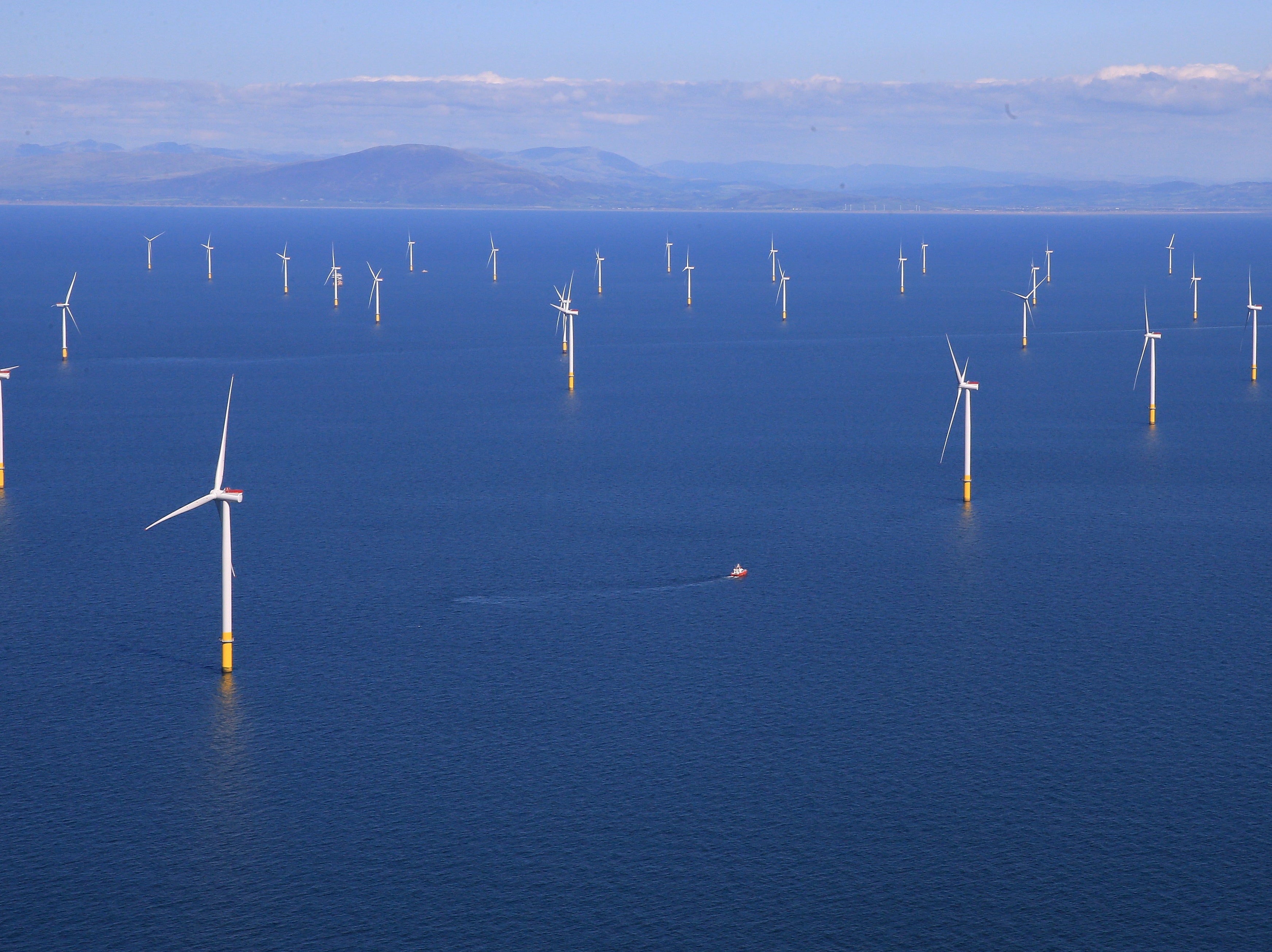Climate crisis: Scotland announces target to power 8 million homes by offshore wind over next 10 years
‘Huge shift away from established norms’ will support green recovery and net-zero ambitions, Scottish government says

Your support helps us to tell the story
From reproductive rights to climate change to Big Tech, The Independent is on the ground when the story is developing. Whether it's investigating the financials of Elon Musk's pro-Trump PAC or producing our latest documentary, 'The A Word', which shines a light on the American women fighting for reproductive rights, we know how important it is to parse out the facts from the messaging.
At such a critical moment in US history, we need reporters on the ground. Your donation allows us to keep sending journalists to speak to both sides of the story.
The Independent is trusted by Americans across the entire political spectrum. And unlike many other quality news outlets, we choose not to lock Americans out of our reporting and analysis with paywalls. We believe quality journalism should be available to everyone, paid for by those who can afford it.
Your support makes all the difference.The Scottish government has set an ambitious new target to increase its offshore wind capacity to power more than eight million homes.
The plan will see hundreds of new wind turbines installed off the Scottish coast, and increase existing offshore capacity to 11 gigawatts (GW) by the end of the decade.-
In addition to providing clean energy and helping the country hit net-zero emissions, the target will drive a “green recovery” from the impact of the coronavirus pandemic, with greater investment in the sector creating more jobs, the Scottish government said.
The capacity of Scotland's offshore wind production is currently 1GW and there are already developments underway to bring this up to 5.6GW.
Scotland’s energy minister, Paul Wheelhouse, said the plan marked “a pivotal moment” for the expansion of Scotland’s offshore operations.
He said: “Our seas are host to some of the best offshore wind resources in the world, and our ambition to capitalise on our offshore wind generation capacity is part of the bold action we are taking to support economic recovery and become a net-zero society.
“The Scottish government is determined to drive a green economic recovery with investment in renewable energy at the heart of it. We want to harness Scotland’s enviable wind resource for our energy system and unlock significant investment in the supply chain to create more green jobs across the sector.”
In a ministerial foreword to the plans, Mr Wheelhouse wrote: “The targets represent a huge shift away from established norms, and the way in which we live and work.”
The target comes after UK prime minister Borish Johnson told the Conservative Party conference earlier this month he wanted to make the UK “the Saudi Arabia of wind”, and said the sector would provide “hundreds of thousands, if not millions, of jobs”.
“We believe that in 10 years’ time, offshore wind will be powering every home in the country, with our target rising from 30 gigawatts to 40 gigawatts,” he said.
Ben Miller, senior policy manager at Scottish Renewables, said the ambition set out by the Scottish government was a “milestone moment”, but warned “there is much work to do”, to hit the target, and expressed disappointment not all the recommendations in a draft plan for offshore expansion were included in the government’s announcement.
He said: “If we are to deliver on those stretching climate targets it’s imperative that we use every tool in our armoury and continue to work together to find creative solutions to the further deployment of the cheap, popular renewable energy technologies which are already delivering environmental and economic benefits across Scotland."
WWF Scotland called on Mr Johnson’s administration to work closely with the Scottish government to make sure the investment in wind benefits local people economically.
Fabrice Leveque, head of policy at WWF Scotland said: “Offshore wind is already powering hundreds of thousands of Scottish homes and this new plan will help grow an industry that’s vital to reach net-zero climate emissions by 2045.
“Each project creates hundreds of jobs and can help put Scotland on a path to a green recovery. In order to ensure local communities and businesses benefit, it’s imperative the UK and Scottish Governments work closely together to ensure as much work as possible goes to local supply chains.”




Join our commenting forum
Join thought-provoking conversations, follow other Independent readers and see their replies
Comments